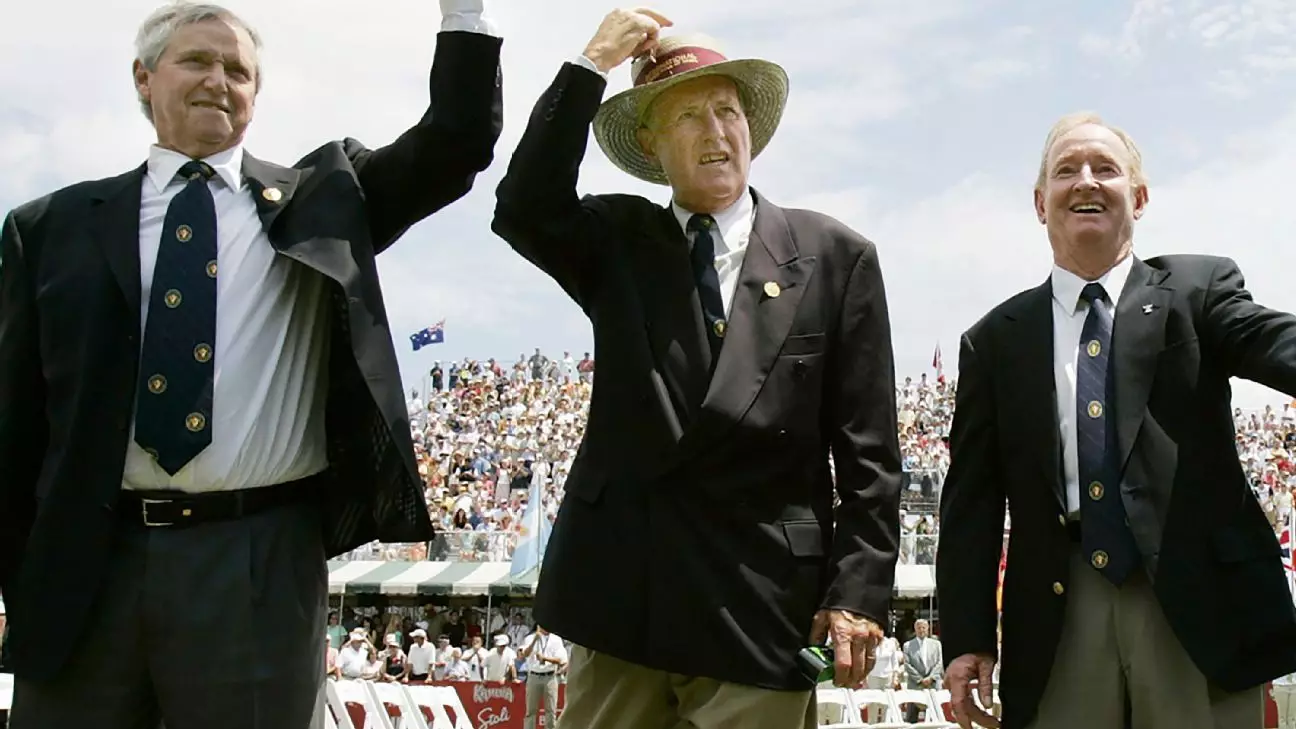Remembering Neale Fraser: A Tennis Legend’s Legacy
When we think of tennis legends, names like Rod Laver and Roger Federer often come to mind. But for those who truly know the history of Australian tennis, Neale Fraser is a name that resonates deeply. His passing at the age of 91 marks the end of an era, but his legacy lives on through his contributions both on and off the court. Fraser’s journey was not just about winning matches; it was about shaping the future of Australian tennis and inspiring generations of players.
Reflecting on Fraser’s career brings a cascade of emotions. There was something uniquely authentic about his approach to tennis—a sport where the line between victory and defeat can be razor-thin. As a young tennis enthusiast myself, I’ve always found inspiration in stories like his, where grit and passion fuel success. Neale Fraser was more than just a player; he was a cornerstone of Australian sports culture—a true testament to what dedication and love for the game can achieve.
Growing up, I remember watching documentaries and reading about those golden days of tennis. Fraser’s victories were always highlighted as pivotal moments in sports history. His story is one that encourages us to look beyond mere statistics and see the heart behind the achievements. It’s this very spirit that continues to inspire modern-day athletes and coaches around the world.
Key Takeaways
- Neale Fraser’s career spanned over two decades, marked by significant achievements both as a player and a coach.
- Fraser’s influence extended beyond his playing days, transforming Australian tennis through his leadership as Davis Cup captain.
- His legacy continues to inspire future generations with a focus on sportsmanship, excellence, and dedication.
The Rise of a Tennis Icon
Neale Fraser’s journey began in Melbourne, Australia, where he discovered his love for tennis at an early age. With hard work and determination, he quickly made a name for himself in junior competitions. His breakthrough came when he won Wimbledon in 1960, defeating none other than Rod Laver. This victory wasn’t just another match; it was a testament to Fraser’s skill and tenacity on the court. Winning against such formidable opponents solidified his place among the greats in tennis history.
His victories didn’t stop there. During the late 1950s, Fraser achieved remarkable success by clinching the US Open singles title along with men’s doubles and mixed doubles titles—a rare feat that showcased his versatility. With 11 major men’s doubles titles under his belt, including wins at every Grand Slam event, Fraser demonstrated an exceptional ability to adapt to different formats of the game. He truly embodied what it meant to be an all-rounder in tennis.

A Competitive Spirit Fostered Through Friendship
The camaraderie between Neale Fraser and Rod Laver is often highlighted as one of mutual respect and admiration. Laver once referred to Fraser as a “true gem” during their competitive era. This friendship pushed both players to elevate their game—an example of how healthy competition can lead to greatness. The respect they shared transcended beyond individual matches; it was about driving each other towards excellence while maintaining strong personal bonds.
This spirit of camaraderie is something that modern-day athletes can learn from. In today’s highly competitive environment, it’s easy to lose sight of sportsmanship amidst the pursuit of victory. However, figures like Fraser remind us that true success lies not only in winning but also in uplifting those around us.
The Captain Who Shaped Future Champions
After retiring from professional play, Neale Fraser took on the role of captain for Australia’s Davis Cup team—a decision that would further cement his legendary status. Rejecting lucrative offers to turn professional, he chose instead to invest in developing future generations of players. This selfless act marked another chapter in his storied career, highlighting his passion for nurturing talent rather than chasing personal gain.
Under Fraser’s guidance from 1970 onwards, Australia claimed four Davis Cup titles—a testament to his strategic acumen and leadership skills. Players such as John Newcombe, John Fitzgerald, and Pat Cash thrived under his mentorship; they often spoke fondly not only about his expertise but also about how he became a father figure within the sport.

The Enduring Influence on Australian Tennis
Fraser’s tenure as captain lasted until 1993—a period during which he helmed an impressive 24 Davis Cup campaigns. Beyond accumulating trophies or accolades during these years, what stands out most is how he instilled values such as resilience and teamwork within Australia’s tennis community—a legacy that remains evident even today among aspiring players across the country.
[CONTINUE FROM HERE]


Leave a Reply